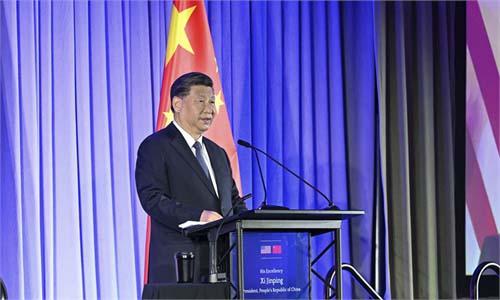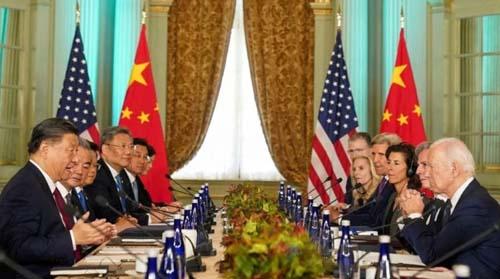
Restructuring China-US relations in 2024 is fraught with uncertainties
Global Times
As the calendar turns from page to page, we stand at the door of a new year, with a glimmer of optimism amid tensions in the US-China relationship. Two recent developments cast a bright light of hope for the future: the advancement of direct US-China military talks and the possible resumption of narcotics control discussions. These events are more than isolated diplomatic gestures. They represent a mutual willingness to stabilize one of the world’s most important bilateral relationships.

The US-China relationship is an important fulcrum for balancing the global order. Its stability or lack thereof has far-reaching implications for regional and international peace and security. Progress in the military dialogue demonstrates that the US and China will be willing to work to manage and mitigate strategic risks. Similarly, the gradual resumption of narcotics control talks demonstrates the two countries’ willingness to work together to address transnational challenges that affect the well-being of their peoples.
However, it is important to recognize that the path to restructuring this complex relationship is fraught with uncertainty. This uncertainty, to global and Chinese observers, is precisely another defining and certain effect of the evolution of American politics, like an absurd drama. The script of US politics has changed, and the relationship with China cannot be separated from that script and become a theater on its own.
Therefore, the China-US relationship is also affected by the uncertainty of the evolution of the domestic political drama in the US, and it is precisely because of this uncertainty that containing China will continue to be the main theme of US foreign policy, and the future development of China-US relations will still be full of conflicts. China is clearly aware of and prepared for this.
After a year marked by the US crackdown on Chinese enterprises and “made-in-China” on a broad scale, it is apparent that the US strategy to counter China’s rise has solidified and is irreversible. In response, China is poised to adopt a more assertive stance, preparing for potential countermeasures and strategic “breakthroughs.”
In the new year, China’s advancements in high technology, exemplified by its burgeoning electric car industry, rebuilding the world trade networks, as well as playing an active peace role in international hot issues, signal a renewed momentum in its economic transformation and a more proactive diplomatic posture. These developments could play a critical role in reshaping US-China relations.
Looking ahead, the challenge for both countries is not merely to restructure their bilateral relationship but to redefine their political, economic and trade relations with the rest of the world. The concept of “decoupling” has dominated much of the discourse, but the future may demand a focus on “reconnecting” – establishing stable communication mechanisms and maintaining essential connections not only between the two countries, but also with the world. The scene begins to change to a wider international background.
Even more pressing is how both countries will forge new global connections. This will have a significant influence on the global supply and trade chains, as well as how the world order evolves.
The US, for its part, is likely to persist in its efforts to build coalitions aimed at marginalizing and containing China. US Secretary of State Antony Blinken’s recent remarks underscore a commitment to engage China from a “position of strength” and leverage alliances in the Indo-Pacific region.
While such rhetoric has been overused, it reflects a broader strategic approach that extends beyond the bilateral relationship to encompass global geopolitical dynamics. The shifting focus of the international background raises the question of how China will navigate this environment, seeking to promote peaceful development conducive to its interests.
When people see more chaos from the political drama in Washington, especially when they no longer expect this hegemonic country to solve global problems, including existing wars and conflicts, their attention will gradually shift to the performance of China and other major countries in the global landscape.
The US will continue to rely on its own strength to contain China. However, as more and more countries seek to enhance bilateral or multilateral cooperation and approaches based on their own national interests, the US’ pursuit will inevitably become gradually ineffective. China’s approach to carving out its place in the global community may well be more consequential for the trajectory of this century than the specifics of US containment strategies.
